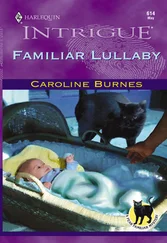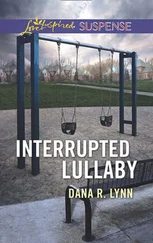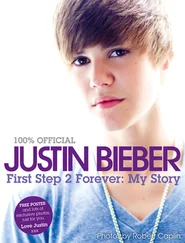I slink down the stairs.
Gene’s car isn’t in the driveway, which is a relief.
Then I notice something strange about the Corolla. Gene let the air out of all four tires; it’s down on its rims. I’ve got a portable compressor that runs off the cigarette light, but it takes me almost an hour to get the tires filled. In that time three different women, all out walking dogs, make a point of crossing to the other side of the street, as though I’m some sort of criminal.
After I put the compressor away, I drive back to McDonald’s. There I order an Egg McMuffin and an orange juice. When I unwrap the sandwich, the smell is so strong I have to roll the windows down and hold the steaming parcel outside the car. The orange juice does its job — the citric acid cauterizes my mouth.
After the sandwich has cooled, threads of waxy cheese hang down, like barbels on a catfish. I take one bite, feel the bile rise in my throat, and spit it out. A seagull swoops over and chokes the piece down.
I tell myself that last night is behind me. The secret to staying on the tour (the secret to anything) is to keep moving forward.
My phone vibrates. It’s Gabby! I’m not in the mood to talk, but she doesn’t call often and almost never in the morning. Like her mother, she’s terrible at getting up. At thirty, she needs two alarm clocks and a programmable coffeemaker to spur her along.
Before I even say “hello” or “good morning,” my daughter says, “Daddy, I’m so mad at you.”
“If you need to yell at me, could you please use a soft and soothing voice, because I got poisoned last night.”
What does she do? She screams. “Listen to me, Daddy. You lied to me. You lied to your own daughter .”
That’s inconceivable. Gabby and I talk about twice a month, and always about her. Could I lie to her about her?
“Sweetie,” I say, “I want to meet your special friend, but you know there are places I have to be.” She knows that the tour goes on hiatus in early November.
Gabby says, “Even when I told you how disappointed I was, you repeated yourself: ‘There’s no way, sweetie.’ You made a big point about the tour skipping Tennessee because of all the bitter songwriters in Nashville. Well, I just learned he’s playing in Bowling Green, Daddy! Bowling Green!” Her voice drills into my tender head.
“It’s a fund-raiser for Mammoth Cave National Park. You don’t need to tell me his itinerary—”
“Bowling Green is ninety minutes from my house, Daddy!”
“It’s not in Tennessee, Gabby.”
“It’s an hour and a half from my house! Did you forget where I live?”
In some ways her anger, like the unforgiving braided rug I slept on last night, gives me comfort. Her anger reminds me where we stand in relationship to each other.
“Sweetie,” I say, “I didn’t realize you’re that close to Bowling Green.”
With her silence, Gabby makes it clear that she is calling to deliver a lecture, not to initiate a conversation.
I say, “After Lexington, maybe I can drive down to your place and meet this special person — we could have breakfast together. That would make me happy, Gabby.”
She says, “Mother calls you a sick old bat, and that’s exactly what you are.”
I wait for her to say more, but she knows she’s said enough.
“Are you still listening, sweetie?”
I hear her glowering.
I ask again if she is still on the line.
“What do you have to say for yourself, Daddy?”
I think about her question for a long time. I think and think some more. “What is it you want me to say?” But Gabby doesn’t hear my question. She’s hung up.
Kopp called in the morning and confirmed what Martin had said: the hospital’s administration planned to grant Peter a leave of absence to travel as Cross’s physician.
“You’re going to be the first physician to embed with a touring rock band.”
Peter stood in his kitchen, watching his coffeemaker create concentric ripples in the glass carafe. Tour, Peter thought — not like a scenic tour, but like a tour of duty.
“Everyone is very excited.”
“What am I supposed to do?”
“They want to call you the Rochester Memorial/Tony Ogata Ambassador for Wellness.”
“But what would I do ?”
“You’ll be available.”
Out of the corner of his eye, Peter noticed a dark form move in the window of his microwave; it was his own reflection. “Is this considered a promotion?”
“I believe it’s an appointment.”
An appointment, as far as Peter could tell, was an arrangement where a person received nonnegotiable currency — typically, prestige — in exchange for assuming additional responsibilities. “And this is official? Everyone assumed I’d do this?”
Peter thought he heard Kopp sigh.
“Remember how I said we had to find a way for people to save face? I think this plan represents a fairly elegant solution. Your director gets to tell her board that they’re partnering with Tony Ogata. Your hospital gets to look. . well, not innovative, but contemporary. And Mr. Cross gets someone to look after him.”
“What do I get?”
“You’ll get to practice medicine on a rock-and-roll tour.”
A word appeared in Peter’s head. That word was “boondoggle.”
“I still haven’t signed anything.”
“That’s correct. And we need to get everything in writing today. Mr. Cross will be in Buffalo tomorrow night and he expects you to be there.”
Peter had the sense that his calculations were merely repeating work done by someone else before him. And if that was the case, if someone else had bothered to follow this thread to its natural conclusion, then he didn’t have anything to worry about. His fate was cast.
“Don’t worry,” Peter said, “I’ll sign whatever they want me to sign.”
I’ve never grasped why anyone would call Jimmy’s performances the Endless Tour. His music will never go away. Fans will never stop decoding his lyrics. But his knock-kneed scarecrow stance won’t survive. How can anyone watch his silhouette follow the glow tape off the darkened stage and imagine the tour is endless?
I started taking pictures as a way to preserve the aspects of Cross’s life that aren’t captured in concert videos and on his albums. I’ve got pictures of the tour bus, of Jimmy getting into town cars and deplaning, passing through customs, the view through my windshield, Jimmy Cross impersonators, the tables selling merchandise, the meals I’ve eaten, the beds I’ve slept in, the faces of the crowds, the lighting schemes, Cross’s name spelled with black plastic letters, with lightbulbs, with LEDs, with lasers, on homemade signs, stenciled on the guitar cases and monitors, on bathroom walls and backstage passes. 15The only thing I won’t photograph is Cross on the stage.
Except for the pictures I showed Gene, no one else has seen my photographs — when your whole life is public, it’s a luxury to keep a few secrets.
I text my source on the tour: Can you get me the doctor’s name?
He responds almost instantly: Favors aren’t free.
$20? (I don’t know why I included a question mark.)
Hahaha .
I attempt to negotiate, but he tells me, basically, to stop wasting his time. The price of a name is fifty dollars. So I wire the money to his PayPal account. Five minutes later my phone beeps, a two-word message: Peter Silver . Just a name, no context, no mention of where he’s from or who he knows.
A Google search for a Peter Silver in Rochester helps to sketch things out. A Peter Silver finished in the middle of the pack of a First Responders 5K outside Rochester. Two years ago, a Peter Silver, M.D., spoke at a Boys and Girls Club banquet. And last fall Peter Silver, M.D., took part in a walkathon that raised $135,000 to fight pediatric obesity. Finally I find a picture cached, of all places, at a salsa dance studio — he’s got one hand on the waist of a spinning woman; her head is tilted back, and her hair flies out like a dervish. He bites his lower lip, he’s focused, you can hear him counting in his mind. It’s him, Cross’s late-night visitor. Rochester Memorial lists him as a “hospitalist.” What sort of business would bring a “hospitalist” to a hotel?
Читать дальше












